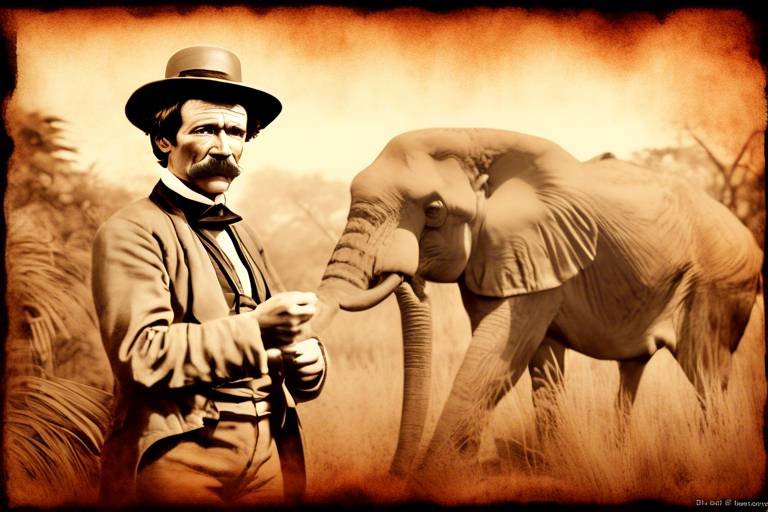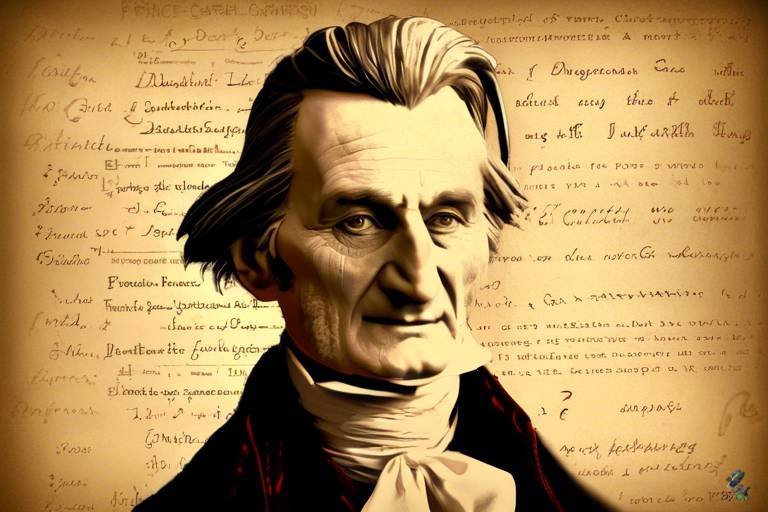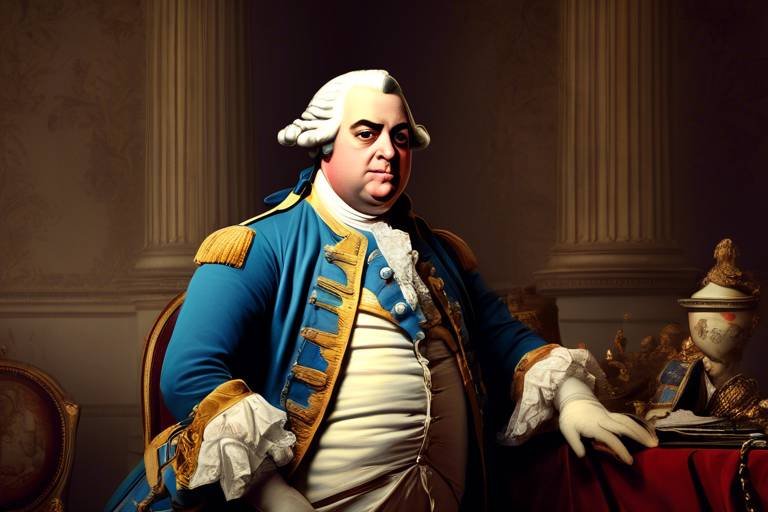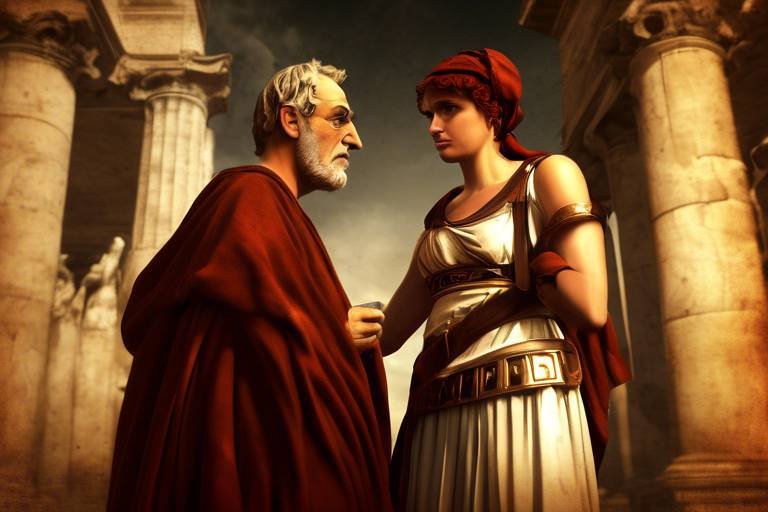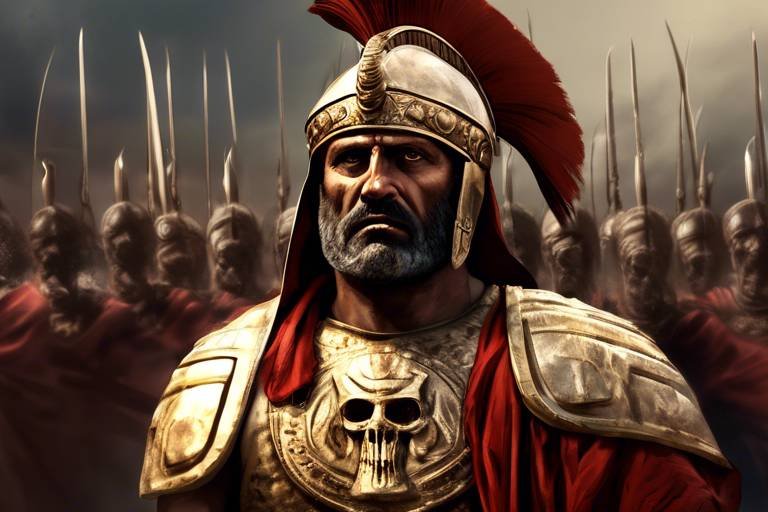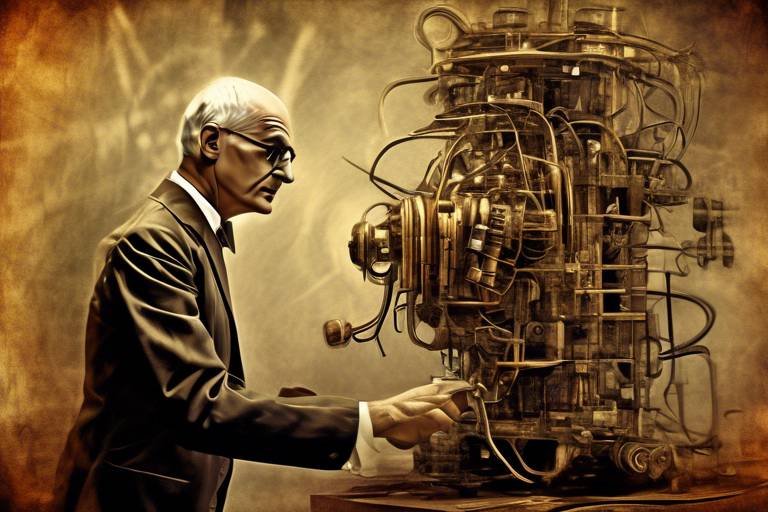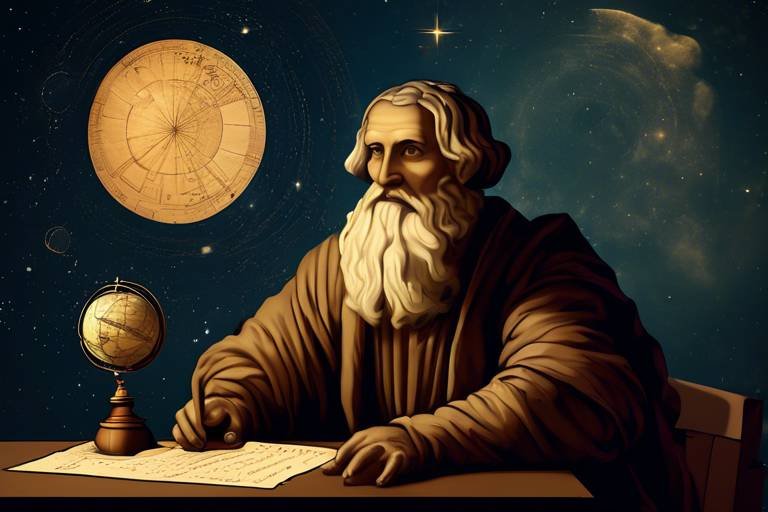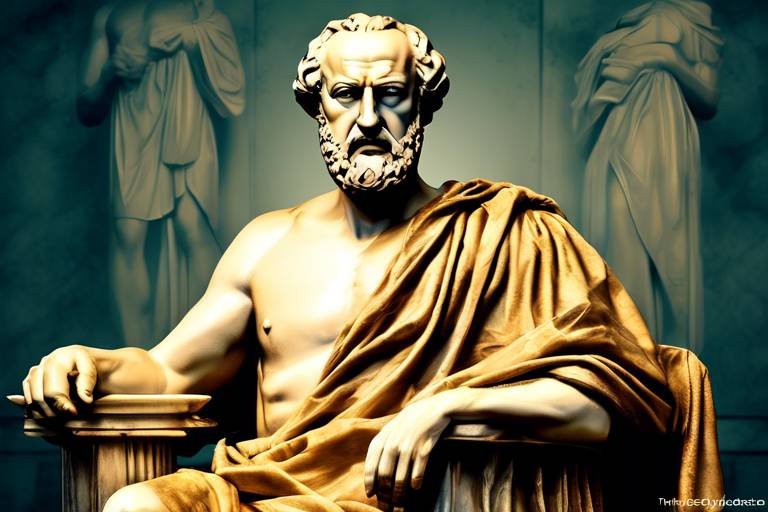Columbus: The Explorer of the New World
Christopher Columbus, the intrepid explorer of the New World, remains a figure of fascination and controversy to this day. His daring voyages across the Atlantic Ocean in the late 15th century reshaped the course of history and opened up new horizons for exploration and colonization.
Setting sail from Spain in search of a western route to Asia, Columbus embarked on a journey that would forever alter the map of the world. His unwavering determination, coupled with a bold vision of discovery, propelled him into the annals of exploration.
As he braved the vast unknown expanse of the ocean, Columbus encountered not only the uncharted lands of the Americas but also the diverse cultures and peoples that inhabited these territories. His interactions with the indigenous populations would leave a lasting impact on the course of world history.
Despite facing numerous challenges and setbacks during his voyages, Columbus's legacy endures as a testament to human curiosity and the relentless pursuit of knowledge. His expeditions laid the groundwork for an era of global exploration and set in motion a series of events that would shape the modern world.
From the shores of the Caribbean to the jungles of Central and South America, Columbus's expeditions opened up a new chapter in the story of humanity, connecting distant lands and forging new pathways for trade and cultural exchange.
While his achievements are celebrated in some circles, Columbus's legacy is also marred by controversy and criticism. The impact of his expeditions on the indigenous peoples of the Americas continues to be a subject of debate, raising important questions about the ethics of exploration and colonization.
As we navigate the complex legacy of Columbus in the 21st century, it is essential to critically examine his historical significance and the enduring consequences of his actions. By reevaluating his impact on global history, we can gain a deeper understanding of the interconnectedness of our world and the complexities of cross-cultural encounters.
Today, as we reflect on the life and voyages of Christopher Columbus, we are reminded of the power of human curiosity and the boundless possibilities that await those who dare to venture into the unknown. His story serves as a reminder of the transformative potential of exploration and the enduring legacy of those who dare to dream.

Early Life and Background
Exploring the life and voyages of Christopher Columbus, the Italian explorer who played a significant role in the discovery of the Americas and the subsequent European colonization of the New World.
Delving into Columbus's upbringing, education, and early experiences that shaped his ambitions and led him to embark on his historic voyages across the Atlantic Ocean.

First Voyage to the Americas
Christopher Columbus's first voyage to the Americas in 1492 marked a monumental turning point in history, reshaping the world as it was known. Setting sail with three ships – the Santa Maria, the Pinta, and the Nina – Columbus embarked on a daring journey across the vast Atlantic Ocean, fueled by a fervent desire to discover a new route to the riches of the East.
As the expedition unfolded, Columbus encountered numerous challenges and uncertainties, from treacherous weather conditions to the fears and doubts of his crew. However, his unwavering determination and belief in his mission drove him forward, pushing the boundaries of exploration and opening up a new chapter in human civilization.
Upon reaching the shores of the Caribbean, Columbus and his crew were met with a sight unlike anything they had ever seen – a vibrant tapestry of indigenous cultures, exotic flora and fauna, and the promise of untold riches. Interactions with the native Taino people revealed a world teeming with life and possibilities, igniting the explorer's imagination and fueling his ambitions.
Establishing the first Spanish colonial presence in the Americas, Columbus planted the seeds of European influence in the New World, setting off a chain of events that would forever alter the course of history. His voyage not only connected distant continents but also sparked a wave of exploration and conquest that would shape the future of global politics and trade.
Despite the controversies and criticisms that would later surround his legacy, Columbus's first voyage stands as a testament to the power of human curiosity and the boundless spirit of discovery. It was a journey that transcended the known boundaries of the world, propelling mankind into a new era of exploration and exchange.

Challenges and Triumphs
When Christopher Columbus set sail on his first voyage to the Americas in 1492, he encountered a myriad of challenges that tested his resolve and determination. Navigating uncharted waters, battling harsh weather conditions, and managing a crew with dwindling morale were just a few of the obstacles he faced. However, amidst these challenges, Columbus also experienced triumphs that would forever alter the course of history.
One of the most significant triumphs of Columbus's first voyage was his arrival in the Caribbean, where he made landfall on the island of Guanahani, known today as San Salvador. This moment marked the beginning of European exploration and colonization of the New World, opening up a new era of trade, cultural exchange, and global interconnectedness.
Despite facing skepticism and resistance from his own crew, who grew increasingly wary as the voyage extended further into unknown territories, Columbus's unwavering belief in his mission propelled him forward. His ability to navigate the vast expanse of the Atlantic Ocean and maintain his vision of reaching Asia via a western route showcased his resilience in the face of adversity.
Moreover, Columbus's encounters with the indigenous peoples of the Americas, although fraught with misunderstandings and conflicts, also presented opportunities for mutual exchange and discovery. The blending of European and Native American cultures, though not without its challenges, laid the foundation for the rich tapestry of diversity that characterizes the Americas today.
In hindsight, the challenges faced by Columbus during his first voyage pale in comparison to the enduring legacy he left behind. His exploration of the New World not only reshaped the geopolitical landscape of the time but also paved the way for future generations of explorers, adventurers, and settlers to follow in his footsteps.

Subsequent Voyages and Legacy
After his groundbreaking first voyage to the Americas, Christopher Columbus embarked on several subsequent expeditions that further solidified his legacy as a renowned explorer. These voyages not only expanded European knowledge of the New World but also had a lasting impact on the course of history.
During his later journeys, Columbus continued to navigate the waters of the Caribbean and ventured into new territories, seeking to uncover more riches and establish Spanish dominance in the region. His exploration of Central and South America brought him into contact with diverse indigenous cultures, each with its own customs and traditions.
One of the key aspects of Columbus's legacy is his role in promoting European exploration and colonization of the Americas. His voyages opened up new trade routes and paved the way for further expeditions by other explorers, leading to the eventual establishment of European colonies across the continent.
However, Columbus's legacy is not without controversy. Critics argue that his expeditions led to the exploitation and mistreatment of indigenous peoples, resulting in significant harm to their societies and cultures. The impact of European colonization on the Americas continues to be a topic of debate and reflection.
Despite the mixed views on his actions, Christopher Columbus remains a figure of historical significance whose voyages reshaped the course of global history. His exploration of the New World laid the foundation for the interconnectedness of different regions and the exchange of goods, ideas, and cultures on a global scale.

Exploration of Central and South America
Christopher Columbus's exploration of Central and South America marked a significant expansion of European presence in the New World. Beyond his initial encounters in the Caribbean, Columbus ventured further south, reaching regions that were previously unknown to Europeans. His exploration brought him into contact with diverse indigenous cultures, each with their own customs, languages, and ways of life.
One of the notable aspects of Columbus's exploration of Central and South America was his interactions with the native populations. He encountered various indigenous groups, such as the Taino in the Caribbean and the Arawak in South America, learning about their traditions and establishing initial contact between the Old and New Worlds. These encounters laid the groundwork for future European colonization and the exchange of goods, ideas, and technologies between continents.
As Columbus navigated the waters of Central and South America, he also faced challenges and navigational difficulties. The uncharted territories, unpredictable weather patterns, and limited resources posed significant obstacles to his voyages. However, his determination and navigational skills enabled him to explore new lands, map coastlines, and establish trade routes that would shape the course of history.
Furthermore, Columbus's exploration of Central and South America had lasting consequences on the region. The arrival of European colonizers brought about significant changes to the indigenous populations, leading to cultural exchange, conflict, and the introduction of new diseases. The impact of Columbus's expeditions reverberated throughout the Americas, shaping the course of history and laying the foundation for future exploration and colonization.
In conclusion, Columbus's exploration of Central and South America was a pivotal chapter in the history of European expansion and global interconnectedness. His voyages not only opened up new frontiers for exploration and trade but also set the stage for the complex and often tumultuous interactions between different cultures and civilizations.

Criticism and Controversies
Christopher Columbus, despite his historical significance as an explorer, is a figure shrouded in controversy and criticism. One of the primary points of contention surrounding Columbus is his treatment of the indigenous peoples he encountered during his voyages. Critics argue that his actions, including enslavement, violence, and forced conversion, contributed to the devastation of native populations in the Americas. The impact of European colonization on the indigenous cultures and societies continues to be a topic of debate and reflection.
Furthermore, there are debates about Columbus's legacy and the way he is portrayed in historical narratives. Some view him as a courageous pioneer who opened up new horizons for European exploration, while others condemn him as a symbol of imperialism and exploitation. The question of whether Columbus should be celebrated or condemned remains a contentious issue, with passionate arguments on both sides.
Another aspect of criticism directed at Columbus is the historical inaccuracies and myths that have surrounded his expeditions. The popular narrative of Columbus as the first European to discover America has been challenged, with scholars highlighting the presence of indigenous peoples in the Americas long before his arrival. Reevaluating the true impact of Columbus's voyages and acknowledging the complex interactions between different cultures is essential for a more nuanced understanding of this pivotal period in history.
In recent years, calls for the reevaluation of Columbus's legacy have grown louder, leading to movements to rename Columbus Day and remove statues honoring him. The push for a more critical examination of historical figures like Columbus reflects a broader societal shift towards recognizing the diverse perspectives and experiences that have shaped our shared history.

Impact on Global History
Christopher Columbus's voyages to the Americas had a profound impact on global history, reshaping the world in ways that were unimaginable at the time. By opening up new trade routes and establishing connections between previously isolated continents, Columbus inadvertently set off a chain reaction of events that would forever alter the course of human civilization.
His expeditions not only led to the exchange of goods, ideas, and cultures between the Old World and the New World but also sparked a period of intense exploration and colonization by European powers eager to stake their claim in the newly discovered lands. The resulting wave of globalization transformed the world economy and laid the foundation for the modern interconnected world we live in today.
Furthermore, Columbus's voyages played a crucial role in shaping the geopolitical landscape of the time, leading to the rise of powerful colonial empires and the spread of European influence across the globe. The conquests and conquests that followed his arrival in the Americas had far-reaching consequences, including the displacement and decimation of indigenous populations, the introduction of new diseases, and the establishment of complex colonial societies.
Moreover, Columbus's exploration of the Americas paved the way for future explorers and adventurers to chart new territories, expand trade networks, and push the boundaries of human knowledge and understanding. His legacy as a daring navigator and visionary explorer continues to inspire generations of individuals to seek out new horizons and push the limits of what is possible.

Historical Reevaluation and Commemoration
Historical Reevaluation and Commemoration delves into the evolving perspectives on Christopher Columbus in modern times. As society becomes more aware of the complexities of history, there has been a reevaluation of Columbus's legacy. Many now question the glorification of his achievements and instead focus on the darker aspects of his expeditions, such as the impact on indigenous populations.
Efforts to commemorate Columbus have also faced scrutiny. Some argue that celebrating Columbus Day glorifies a figure associated with colonization and exploitation. This has led to calls for rethinking how we remember historical figures like Columbus and considering a more nuanced approach to commemoration.
Various initiatives have emerged to address these concerns. For instance, some cities have renamed Columbus Day to Indigenous Peoples' Day as a way to honor and recognize the cultures that existed in the Americas before Columbus's arrival. This shift reflects a growing awareness of the need to acknowledge the perspectives of indigenous communities in historical narratives.
Furthermore, there have been discussions about how to teach Columbus's legacy in schools. Educators are exploring ways to present a more balanced view of Columbus that acknowledges both his achievements and the negative consequences of his actions. By providing a more comprehensive understanding of Columbus's impact, students can engage critically with history and develop a more nuanced perspective on the past.
Frequently Asked Questions
- Who was Christopher Columbus?
Christopher Columbus was an Italian explorer credited with the discovery of the Americas in 1492. His voyages across the Atlantic Ocean under the sponsorship of Spain played a significant role in European exploration and the subsequent colonization of the New World.
- What were the main challenges faced by Columbus during his expeditions?
Columbus encountered various challenges during his voyages, including navigating unknown waters, managing his crew's morale, and dealing with the uncertainties of exploration in uncharted territories. Additionally, he faced resistance and skepticism from those who doubted the feasibility of his proposed routes.
- What is the controversy surrounding Christopher Columbus?
There is ongoing debate and criticism regarding Columbus's treatment of indigenous populations, the impact of European colonization on native cultures, and the broader implications of his expeditions on global history. Many view his legacy as complex, with both positive and negative aspects.
- How is Christopher Columbus commemorated today?
Columbus is commemorated through various means, including statues, monuments, and annual celebrations such as Columbus Day. However, there are also movements advocating for a reevaluation of his legacy and a more critical examination of his historical significance.





